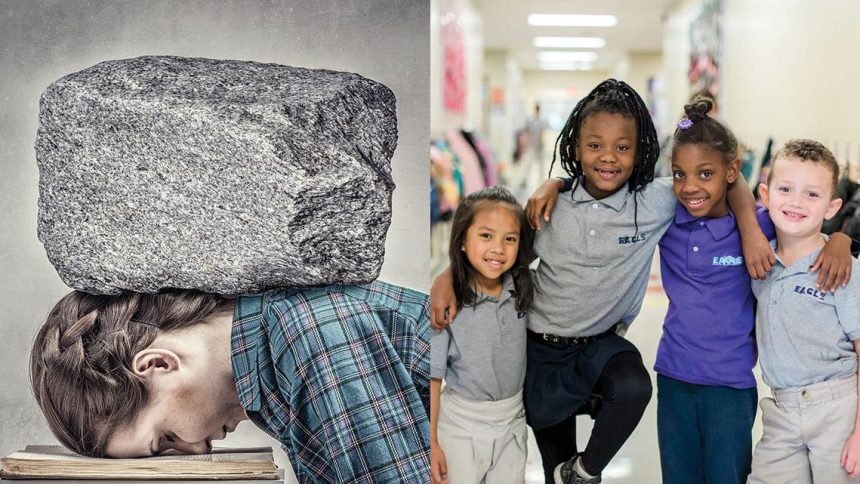The belief that parents – not the state or a city or a school district, but those who actually know and care for kids – are the best judges of how to meet a child’s educational needs is clear and straightforward. It’s not a revolutionary thought, or at least it shouldn’t be.
Nor is it extremist to think that the taxpayer dollars allocated for students should go to the students and not to their school districts.
Three states – Arkansas, Iowa, and Oklahoma – are leading the charge and have dramatically expanded education opportunity by adopting policies to ensure more families can participate in pioneering education choice programs. They have been chosen for the inaugural Yass Award for Education Freedom based on their legislative accomplishments in creating equitable education markets that empower parents, particularly those underserved by today’s systems.
Arkansas, Iowa, and Oklahoma went from nearly zero to one hundred in offering citizens the ability to use state education dollars to make educational decisions for their children. They demonstrate the opportunities that decisive action and policy making can create for families desperate for – and deserving of – new options for educating their children.
The Yass Award for Education Freedom will award $5 million to education providers in these states, nominated by their governors, for their capacity to grow and for their commitment to education transformation. The award’s funds are intended to spur creation of new options to help more students take advantage of their state’s new education freedom programs.
In step with the rest of the country, Arkansas’ NAEP scores dropped in 2022, and the state’s new Governor vowed to do something about it. As part of a comprehensive education package that boosts education funding, teacher salaries and literacy programs, the Education Freedom Account program allocates 90 percent of state education dollars, $6,614 per student, to be used for a student’s education of choice, with access growing to all students by FY 2025.
In Iowa, Governor Kim Reynolds said the declining NAEP scores were anticipated and they “still have work to do to improve educational performance.” Iowa kept its schools open during the pandemic and “gave parents the choice of what was best for their children.” Iowa’s efforts continue with the Students First Act that provides up to $7,598 per student, starting with families whose household incomes are at or below 300 percent of the federal poverty level. The program anticipates serving roughly 14,000 students in FY 2024 and all K-12 students eventually.
Oklahoma Governor Kevin Stitt said while “funding has gone up, [NAEP] test scores have gone down.” To rectify educational deficiencies, he led the charge to enact the Oklahoma Parental Choice Tax Credit Act which beginning in 2024 will phase in refundable tax credits for most families, up to $7,500 per child, to cover the cost of education choices.
With K-12 Education funded to the tune of $400 billion dollars annually and vast numbers of students attending schools that are either woefully substandard or abysmal, these state changes could not come too soon.
That’s why initiatives like The Yass Award for Education Freedom exist. While it shouldn’t be solely philanthropy’s job to fund education, it can accelerate and broaden access to great education opportunities by helping create a new supply of choice seats outside the bounds of traditional models of teaching and learning. Effective philanthropy can reward and incentivize best in-class education innovations to start and expand, but they must become sustainable on public funds, so that no child is dependent on fundraisers to provide a great education.
That’s why states must move decisively to ensure that funding be fairly and equitably allocated to follow students, following the lead of the eleven states that have expanded or adopted education freedom accounts for families this year but going farther to ensure that every penny that is intended for a students’ education actually reaches the education of their choice, giving education freedom not just to those who can subsidize education but to every child, especially the underserved. Doing this is the most important education challenge facing policymakers today.
Read the full article here





